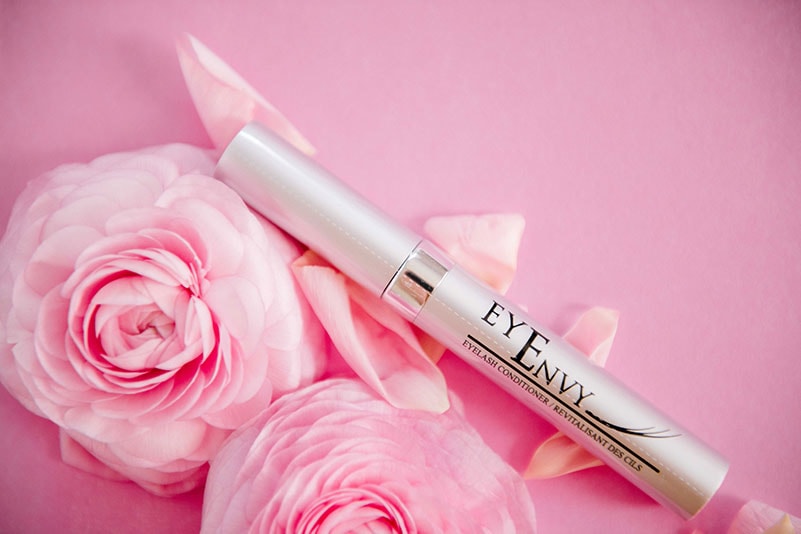I first heard about eyelash extensions back in 2011 when they were still relatively new to Aussie shores. They were a popular beauty treatment in Russia, Japan and had been gaining traction in the US before coming to Australia. When I learned a little about them, I booked myself in for a treatment and was HOOKED. I completed my training that same year and have been in the industry ever since.

Now the reason I’m telling you all of this is that I want you to know that this advice is backed by experience. The short answer to the question “I had an allergic reaction to eyelash extensions – should I get them again?” is a firm no.
I break this news to allergic women every week and it really makes me sad to have to tell them this….if you’ve ever had a reaction to lash glue, you simply cannot get lashes again.
It doesn’t matter if you’ve had lash extensions for years and then randomly react once – reacting that one time means that an allergy to the main ingredient in the adhesive (cyanoacrylate) has developed and sadly you will react again.
At The Lash Spa, we strictly do not apply lashes to any client who has previously experienced a reaction. The risk for us and for the client is just not worth it – we don’t want to be responsible for any discomfort to our clients.
We have been down that road before with clients who come in begging for us to try when they have known allergies. They think the reaction was caused by cheap glue from the previous salon or unsafe hygiene practices. And it’s true that we use the highest quality glues and have a 4 stage sterilisation process to ensure all our tools are completely sterile – but the issue is with the glue – and the main ingredient is always the same.
Women get upset when I break the news to them that we won’t perform a patch test for clients who have previously reacted. The reason is – we are very strict on not getting involved with allergies after going down that road a few years ago with clients who passed the patch test and then still had allergic reactions once the lashes were on – it’s just so unpredictable!
For a salon owner, you can imagine the stress of this situation…
A lady calls and says she’s unsure if she is allergic and would like a patch test. I agree and invite the lady in for a complimentary consultation, we apply some adhesive behind her ear and there is no reaction. We then apply a few lashes to the outer corners of her eyes and leave it a few days…no reaction. YAY!
THEN, we apply a full set of lashes and sadly the client reacts. We invite her in for a complimentary removal of the lashes which is usually a paid appointment. She wants to come in at 7am because she’s uncomfortable – and I have to tell her we’re booked solid for a few days but I’ll see what I can do. I desperately arrange an after-hours babysitter for my son – at the appointment she says she doesn’t want them removed anymore and leaves after I apply saline solution to the lashes to cleanse them. I give her a complimentary bottle of saline solution so she can clean them at home.
The client calls again the next day, very distressed and upset (angry with me) because the reaction is now worse and once again wants to come in ASAP. I arrange a sitter for my baby again. The removal takes over an hour because we have to be extra gentle due to the reaction. Then the client asks for a full refund which I felt too awkward to refuse despite the client having 3 appointments, fully understanding that the reaction was due to an allergy and outside our control, and receiving multiple products.

You can see how after going through this experience and others just like it multiple times, that we simply don’t take the risk of working with allergic clients. An alternative to eyelash extensions is growth serum called Eyenvy (we are stockists if you’d like to purchase some) – it won’t give you the instant and dramatic results of extensions, but it promises to lengthen and thicken up your natural lashes over time.
I wish you luck with your lash journey and do sincerely apologise again if you were trying to get in for an appointment and we said no. We really have your best interests at heart as well as needing to protect ourselves too.
The Truth About Eyelash Extension Allergic Reactions
Eyelash extensions have become increasingly popular in recent years; however, allergic reactions can sometimes occur. But what causes eyelash extension allergies, and how can you avoid them? In this article, we’ll break down the common causes of eyelash extension allergic reactions and what you can do if you’re experiencing them.
What is an allergic reaction to eyelash extensions?
An allergy to eyelash extensions is an adverse response from the immune system after exposure to substances found in the adhesive, extensions, or other products used during the installation process. The body’s immune system perceives these substances as harmful and produces an exaggerated response that leads to symptoms ranging from mild to severe. The symptoms typically appear within 24-48 hours after getting eyelash extensions and can last for several days or weeks.
What causes an allergic reaction to lash extensions?
There are several factors that can cause an allergic reaction to lash extensions, including the following:
- Adhesive: The adhesive used to attach the eyelash extensions to your natural lashes contains chemicals called cyanoacrylates, which are known to cause allergic reactions in some people.
- Extensions: The materials used to make the lash extensions, such as synthetic fibers, can also cause allergic reactions in some individuals.
- Other products: The products used during the installation process, such as primers, removers, and sealants, can also trigger an allergic reaction.
Will an allergic reaction to eyelash extensions go away?
In most cases, the symptoms of an allergic reaction to eyelash extensions will go away once you remove the extensions and avoid exposure to the allergen. Unfortunately, if you have experienced an allergic reaction once, you won’t be able to get eyelash extensions ever again since you’ll likely have the same outcome to the lashes.
How to prevent an allergic reaction to lash extensions?
While there is no guaranteed way to prevent an allergic reaction to lash extensions, there are some steps you can take to reduce the risk, such as the following:
- Patch test: Before getting eyelash extensions, ask your technician to perform a patch test on a small area of your skin to see if you have an allergic reaction to the adhesive or extensions.
- Choose the right products: Look for products that are hypoallergenic, low in fumes, and free of formaldehyde and other irritants that can trigger an allergic reaction.
- Take care of your extensions: Properly caring for your eyelash extensions can reduce the risk of an allergic reaction. Avoid rubbing or tugging on your extensions, and make sure to clean them regularly with a gentle, oil-free cleanser.
What are the treatments for an allergic reaction to eyelash extensions?
If you experience an allergic reaction to eyelash extensions, you can try the following treatments to reduce your symptoms:
- Remove the extensions: The first step in treating an allergic reaction to eyelash extensions is to remove the extensions and avoid exposure to the allergen.
- Take antihistamines: Over-the-counter antihistamines can help relieve itching and swelling caused by an allergic reaction.
- Apply a cool compress: Applying a cool compress to your eyes can help reduce discomfort or swelling.
- Use corticosteroid creams or ointments: If your symptoms are severe, you may need a prescription corticosteroid cream or ointment to relieve itching and reduce inflammation.
Conclusion
In conclusion, while eyelash extensions can enhance your natural lashes and give you a more polished appearance, it’s essential to understand the risk of allergic reactions and know how to prevent and treat them. If you experience an allergic reaction, remember to remove the extensions, seek medical attention if necessary, and take steps to avoid exposure to the allergen in the future. By following these guidelines, you can enjoy beautiful lashes without compromising your health and well-being.
